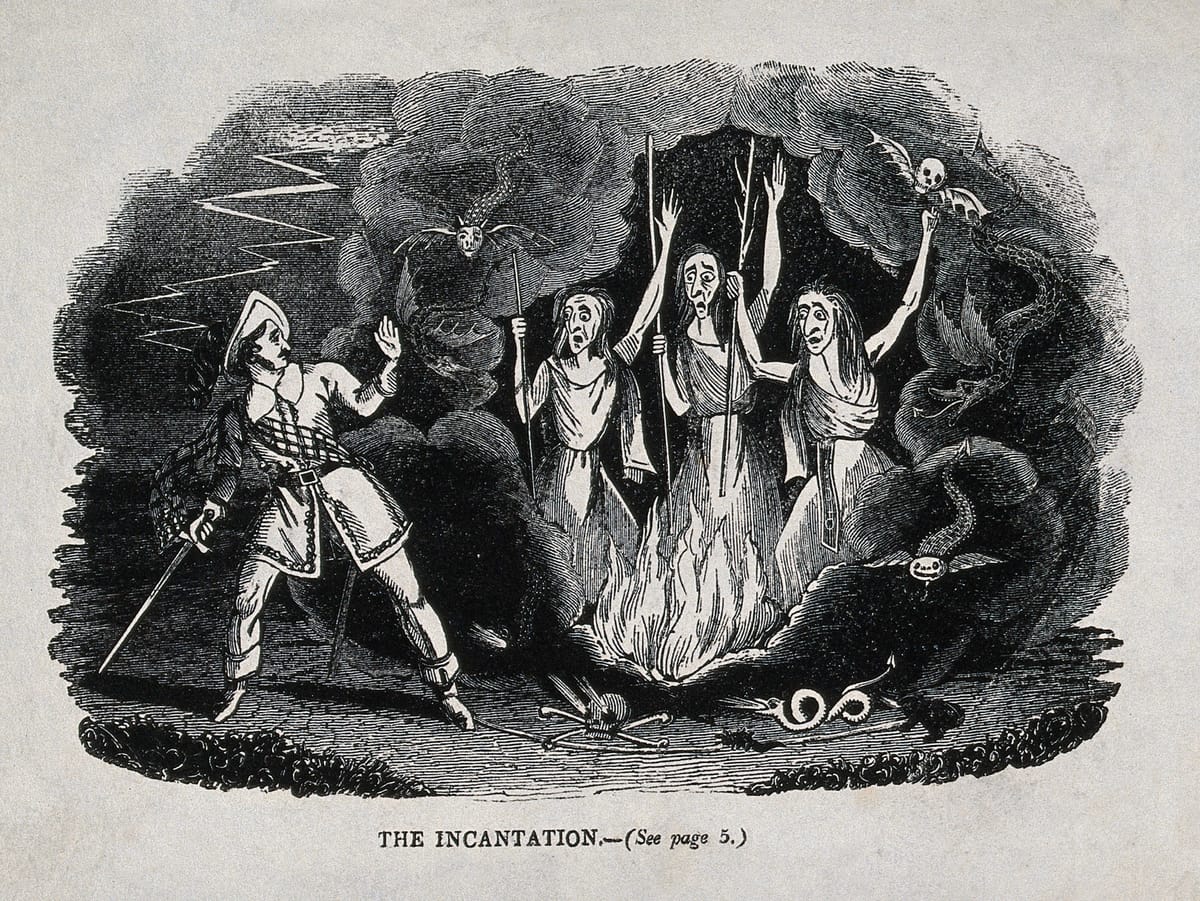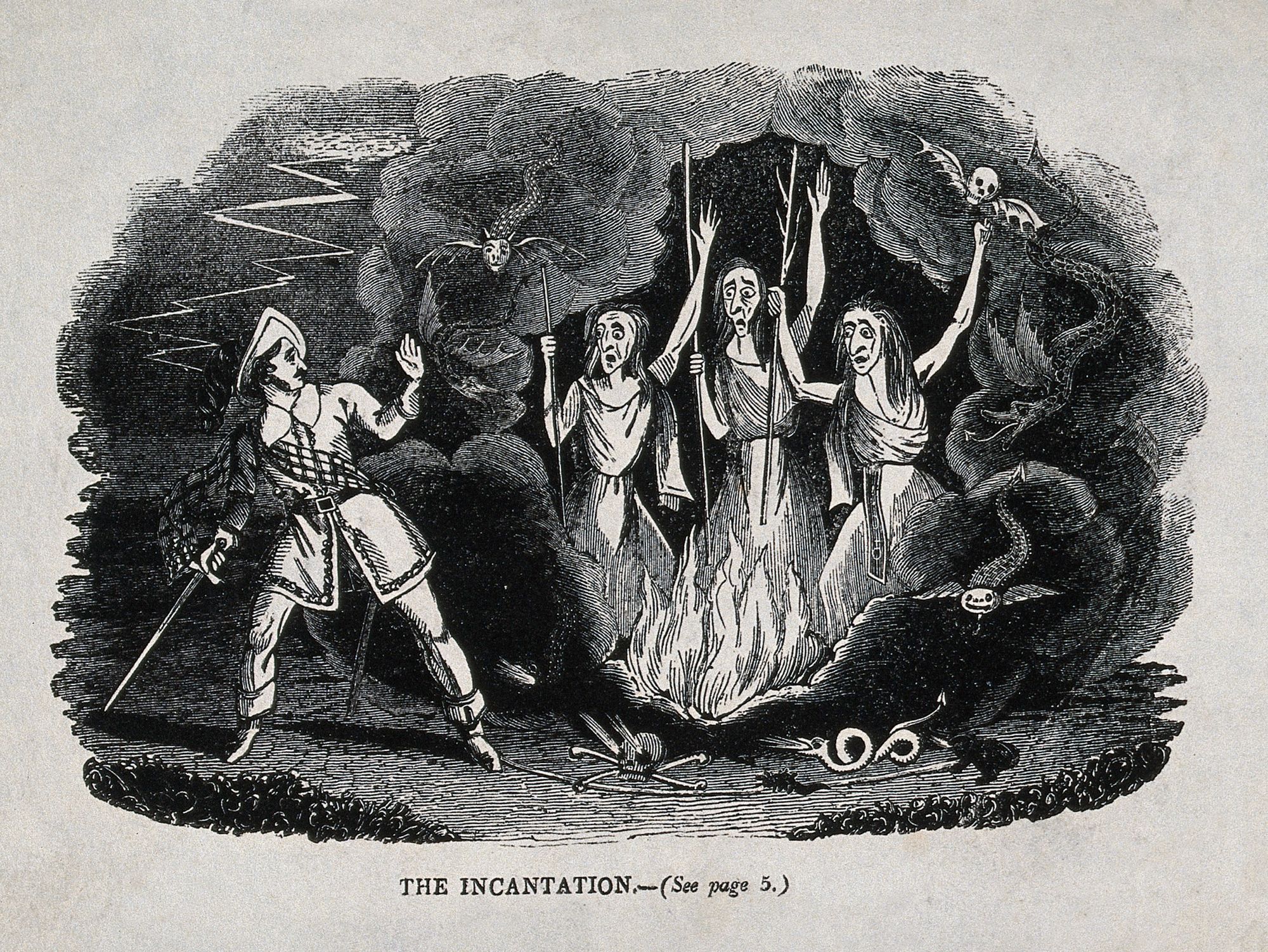“The Tragedy of Macbeth”: Finally, a Good Remake
Davis Rennella '24 reviews A24's adaptation, "The Tragedy of Macbeth," directed by Joel Coen. The film's unconventional set design and focus on the inanimate make the film a unique take on Shakespeare's classic play.


“Out, out brief candle ... Life is but a walking shadow.”
Macbeth’s (Denzel Washington) quiet agony in these lines, after learning of his wife’s untimely suicide, speaks to the insecurity we all feel over our lives’ work — the question of whether, if we step back, anything we did was really meaningful. In A24’s movie adaptation of Shakespeare’s classic tragedy, this line takes on a literal, as well as existential meaning, as we are thrust into a dark and gloomy 11th century Scotland while Macbeth’s life collapses around him.
Shot in black and white, and in a cinematic world that is devoid of detail or accents of any kind, every word seems to be spoken into a void. Even while Lady Macbeth (Frances McDormand) tells her husband her plan to kill Duncan (Brendan Gleeson), the king of Scotland, Macbeth’s face is veiled in shadow. We cannot truly tell how much he heard of her speaking, and his sudden reversal to being content with murder comes as something of a mystery. With the production’s move to obscure all expression, we become just as uncertain as to what Macbeth’s motivations are as he is.
The Scottish play is about ambition, and how a prophecy given by three mysterious witches that Macbeth shall be king of Scotland moves him to murder, treason, and self-destruction. Despite the intense psychological breakdowns Macbeth and his wife suffer while reflecting on the guilt of their deeds, the film focuses on the inanimate to bring us into this space of insanity. The set, for instance, is much like a diorama — Macbeth’s castle almost looks like it was made of wooden building blocks — and the fact that real human beings are there at all becomes almost uncanny. We hardly ever see the sky, and when it does appear, it is only as a suffocating and totally out of focus aura in the background. We get a sense of being trapped in a world that is entirely made of artificial substances — even the scenes in Birnam Wood have the trees lined up as if to form a long corridor where there is only one path to follow. The characters’ fates, and the roles they play, seem like affairs they have no choice in. As a result, their interactions often take on a more restrained tone, as if they are shutting down psychologically in the face of living their lives perpetually on a stage, at the mercy of whoever is directing the show.
In this world where coldness is the norm, moments of strong emotion come with a special impact. And although “Macbeth” is Shakespeare’s bloodiest tragedy, only some of the violence is brought out in its true, horrific nature. When the traitorous Thane of Cawdor is set for execution at the beginning of the play, we get a shot of him kneeling before the Thane of Ross (Alex Hassell) with sword in hand, but we can only infer his demise after Macbeth draws a tent’s curtains to talk with his friend Banquo. And Macbeth’s stabbing of King Duncan is nearly silent, with Macbeth clamping down the king’s mouth when he draws the knife. Watching the plot take shape is like walking through a dark forest with a beast dwelling within. We know that we’re being followed, but only hear a distant snapping of a twig or rustling of the leaves as the action slowly crescendos towards outright violence. Malcolm’s (Harry Melling) throaty cry of “Horror!” upon discovering the slayed king is like the first look into the dreadful monster’s eyes — the moment when cruelty breaks out of its sterile confinement and is reflected in Malcolm’s disbelief as he races down the castle stairs, saying: “Tongue nor heart cannot conceive nor name thee!”
This particular line, among others, is delivered with a certain haste and economy that seems to defy Shakespeare’s verse. But this speech pattern doesn’t come up uniformly across the board. Macbeth’s way of speaking is by far the least Shakespearean, and he sometimes seems to be trying to simply evict thoughts from his head as quickly as possible, ashamed of their content. People such as Duncan and Lady Macbeth, who are more firm of purpose, take on a more varied and emphatic way of speaking. And the witches, who are given an at once mesmerizing and disturbing performance, slow down to a hypnotic chant. Being able to see into the future, they speak with complete confidence, and their words inherit a musical quality that can only be maintained by someone with power such as theirs. It’s small but significant choices like these which make this production not just good, but great.
This production of “Macbeth,” save the script, certainly breaks a lot of expectations for Shakespeare. But from the minimalist, stage-like set to the understated dialogue, everything makes sense in this new framework of a small and claustrophobic Scotland that the producers conjure up for us. And when Macbeth finally has to fight to defend his ill-won throne, the action is classic in its excitement and doesn’t disappoint. I finished watching this production feeling like I had seen something truly one-of-a-kind. Even if Shakespeare is not normally your speed, you are sure to be compelled by this fantastic production.





Comments ()